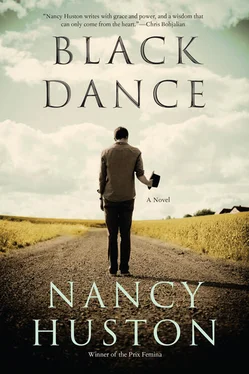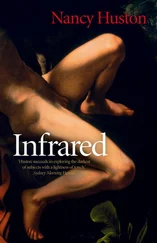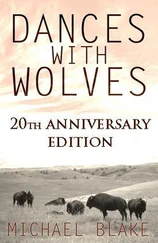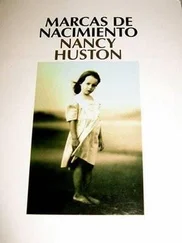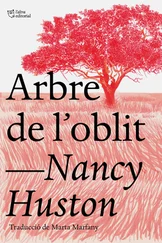“For God’s sake, Milo! You’re just too passive! You have no will of your own! I’ve been telling you so for years! It is impossible to know what you really want, because you don’t want to tell me! I want to make love, you say fine; I want to marry you, you say fine; the great Paul Schwarz wants to make a film with you, you say fine; and what if he wants to sleep with you? Do you say fine then, too? Maybe you do! I spend the night in the arms of another man and you say fine. Are you missing a cog or what, Milo? You should get help!”
Before answering, Milo stubs out his cigarette, carefully washes and dries his coffee cup, and puts it away in the cupboard.
“You don’t belong to me and I don’t belong to you. People can’t belong to each oder. They can’t even know each oder. . Dey don’t even know demselves! I don’t feel de need to know everyting you do. I trust you. Everybody does what dey need to do, don’t dey?”
“But if I leave you, Milo?”
“Well. . if you leave me, you leave me. You won’t be dere, so you won’t have to tell me, I’ll see it all by myself.”
“Jesus, I don’t believe it. You’re incredible !”
CUT to the two of them in bed, writhing in each other’s arms. But Yolaine’s mind is elsewhere. .
Then comes a depressing scene most of us have probably lived through at least once: on a rainy, desperately gray November afternoon, surrounded by boxes and suitcases, the couple divvies up their kitchen utensils. . record collection. . library books. . all the possessions they’ve accumulated in five years of marriage.
CUT to Milo’s right hand, signing his name with a flourish at the bottom of an official paper. Close-up on the end of the text: divorce by mutual consent. As no children issued from this union, no legal dispositions need be made on the subject . Signed: Milo Noirlac . He hands the pen to Yolande.
(And then, Astuto. . It was just a few weeks after your divorce, wasn’t it, that. .)
One evening, in his new and much smaller apartment out in the Mile End section of Montreal, Milo is completely engrossed in the Science and Sorcery screenplay. . so when the phone rings (jump, shout, What? ), he picks up the receiver angrily. Listens. We hear a man’s voice but can’t make out the words. After a few seconds, Milo sits down again.
“I don’t believe you. . Who de hell is dis?. . Okay. No, tomorrow I go to New York. Next week I come. Tell me your address. Okay. Six o’clock next Wednesday. Okay.”
CUT to Milo walking down the dimly lit hallway of a shabby rooming house. The odor of poverty fairly leaps at us from the screen: a gut-rippling mixture of urine, beer and cabbage. So thick is the layer of filth on the walls and floor that Milo’s hand hesitates before touching the door knocker. The door opens a crack; a bleary eye peers out; a chain is removed; Milo steps into the room.
Smaller than he, the man reeks of whisky, decayed teeth and ancient sweat. His apartment seems to have seen neither daylight nor a duster in decades. . Thank God for images, Astuto; thank God we don’t need to cast about for words to describe the place. The stench and strangeness are so overpowering that Milo has to consciously will his body to stay nailed to the spot.
“Sit down,” the old man says. “Make yourself at home.”
Milo lowers himself into a faux-leather armchair whose springs whine in protest at his weight.
“So explain to me what you’re talking about.”
“It’s true. I swear it’s true. Cross my heart and hope to die, I’m your da.”
“My fader’s dead.”
“No,” says Declan, ridiculously flexing his biceps. “Look: There is still a bit of life left in these old bones! If I was dead I’d know about it, seems to me!”
“Who de fuck are you?”
“I’m not kiddin’, I’m your da. Look! I’ve got your birth certificate and all.”
Hobbling over to a chest of drawers, Declan pulls out a sheet of paper and waves it under Milo’s nose, then points triumphantly at words on the paper: “See? See?”
But whether because of the dim light in the room or the hubbub in his brain, Milo can decipher nothing; all he sees is the black line of dirt under the old man’s fingernail.
“Noirlac, Milo. Son of Noirlac, Declan and Johnson, Awinita. I’m Noirlac, Declan. I’m your da, see? Neil’s son, seventh of thirteen, right smack in the middle! Didn’t Neil ever tell you about me?”
Milo is thunderstruck.
“I’m the one who named you Milo! I chose your name, I did! In March ‘51, Miles Davis’s Birdland songs were on the radio all the time and I was crazy about them. So I called you Milo, which is Irish for Myles. Given that we’re Irish.”
Silence. Then: “How did you find me?”
“Saw in the newspaper you were livin’ in Montreal again. Called up information on the off chance.”
“In de newspaper ?”
“Yeah, look. .”
Declan opens a folder containing a sprawl of newspaper clippings. Torn from the culture section of a recent Gazette , the one on the top includes a photo of Milo and Paul grinning from ear to ear, their arms around each other’s waist. Local Screenwriter Swings Contract with Major U.S. Producer, the headline reads.
“So?”
“So! You’re doin’ good, eh? You’re doin’ fine. Glad to know it, Milo.”
“So?”
“So I thought. . you know. . Me being your very own da and all, and you havin’ come up in the world, so to speak. . doin’ even better than your own da. .”
“I don’t believe it. . Is dat why you got in touch wit me?”
“Well, I admit I thought you might see clear to givin’ your old man a hand. Makin’ him a loan, like.”
Silence. Declan offers Milo a glass of whisky. Getting no response, he sits down and takes a swig directly from the bottle.
“I told your ma I’d maybe ask you for a little help, and she said it was a good idea.”
An electroshock.
“My moder’s alive ?”
“Sure. . Why should everybody be dead? We ain’t even old yet. We keep in touch. When you were born, I promised her I’d take care of you and I did.”
“You took care of me? I’m tirty years old, I meet you for de first time in my life, and you sit dere and look me in de eye and say you took care of me?”
“Yeah, you know. . I stayed in touch with the agency. . I always kept track of the foster homes they put you in. . And if I heard your foster parents were beatin’ you too bad, I made sure they moved you somewhere else. . None of that for me! Strangers, hitting my own son! No, sirree! I kept my promise to your mom. .”
“My Indian name.”
“Yeah, Nita gave you a Cree name, too. That’s right.”
“What was it?”
“Huh. . it’s been ages. . Got it written down somewhere. Prob’ly find it in that chest of drawers, if you wanna take a look. Or you can call her up and ask her for yourself. She’s back on the res now, up north. Happy to give you her number, if you can afford long distance calls. I sure as hell can’t!”
“I don’t believe you.”
“She wrote to me last week. Go see for yourself, if you don’t believe me. Letter’s right there in the bedroom.”
Milo rises. As he crosses toward the bedroom in slow motion, Awinita’s voice moves into our ears in crescendo: What ya doin’ in de dark, little one? Come wit me! Come wit your mom!. . Fear noting, son. The sacred is neider above nor below you. . Don worry ‘bout God or de Devil. . Everyting you do is a prayer. . Your Cree name means resistance . You gonna have to resist, little one. You gonna need to be strong. . What ya doin’ in de dark, little one?
Читать дальше
